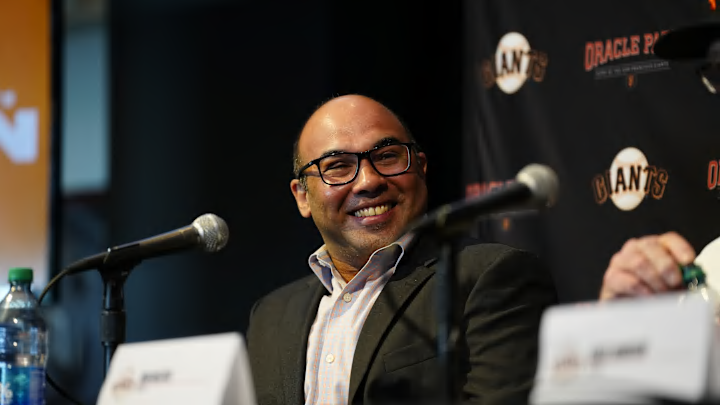The SF Giants signed pitcher Jordan Hicks to a 4 year, $44 million deal. The hope is that he will become a solid starter for them despite the fact that he has been a reliever for the majority of his career.
This could wind up being a good move. There is nothing inherently wrong with this move. The problem is that it is likely the last move the Giants will make to address their rotation this offseason. It is emblematic of the Giants' approach to roster building ever since Farhan Zaidi became president of baseball operations.
Over the last five years, the SF Giants have employed the 'Moneyball' approach to building a team. They have operated like a small, low-budget team making marginal moves to improve by increments. And to be fair to Zaidi, this is what the SF Giants ownership group hired him to do.
The SF Giants are still trying to 'Moneyball' their way back to relevance
This approach has certainly succeeded at times for the Giants as well as other teams. The Oakland A's, the organization that pioneered this approach, had several solid seasons while having a small budget compared to other teams that made the playoffs. It is no coincidence that the Giants now have Bob Melvin as their manager who worked alongside Zaidi in Oakland as the two honed this approach under the supervision of its architect, Billy Beane.
The Tampa Bay Rays have had success in recent years employing a similar approach. They won 99 games last year despite having one of the lowest payrolls in baseball. And, the Hicks addition has the feel of the type of move the Rays would make. It is creative, but the Giants are a billion-dollar organization, so why not bypass creativity for more of a track record? They have the money to do it.
This approach worked to great effect just three seasons ago in 2021 as the SF Giants won a franchise-record 107 games. This success even made me buy into this approach. When the Giants passed on many top free agents after 2021, including Kevin Gausman, I shrugged it off because I figured the front office was so advanced and skilled that they would continue to find diamonds in the rough like Gausman or LaMonte Wade Jr.
But as we have learned from the last two seasons of mediocrity, it is impossible to keep hitting at that rate of success with marginal moves. The teams that are consistently solid like the Dodgers, Phillies, and Braves all have a core of stars that you can reliably count on. That is not the Giants. They are not close to those teams yet.
The mixing and matching and platoon-heavy lineups can work for a few weeks, months, or even a whole season, but eventually your luck will catch up with you. Guys get cold, injuries happen, and you don't have those consistent everyday guys to pick up the slack.
The same can be said about the rotation. After the Giants turned Gausman into an All-Star and Anthony DeSclafani into a solid starter, it seemed natural to reason that they could do similar things with the likes of Sean Manea and Ross Stripling. Last year showed that things even out. One year you get a Diamond in the Rough, the next you get a Dust Pan in the Ravine.
The odds that both Robbie Ray and Jordan Hicks will be solid contributors to the Giants rotation for the next three or four seasons are fairly small. But the Zaidi 'Moneyball' calculus is only counting on one of them to succeed.
That's the strategy: low-risk, high-upside signings. They would never go for a Blake Snell signing where it is a risky and expensive bet even though there is a higher chance you're going to get a guy who is a frontline starter for the next few years.
The front office probably has the odds at 75-25 on Ray pitching at a high level, maybe 65-35 on Hicks being a solid starter, and probably 80-20 that they could potentially get a solid version of Snell for several years. But the 20-percent chance they are wrong would come at a steep price in the case of Snell whereas if Ray and/or Hicks don't work out they can still make other marginal moves to try to make up for it whereas you'd be stuck with a bad, expensive Snell if he struggles or gets hurt.
In short, they're going to take quantity over quality every day.
That's the Zaidi 'Moneyball' approach. That doesn't mean the strategy cannot work at times. But we have no reason to believe that it can work consistently based on Zaidi's uneven track record in San Francisco.
